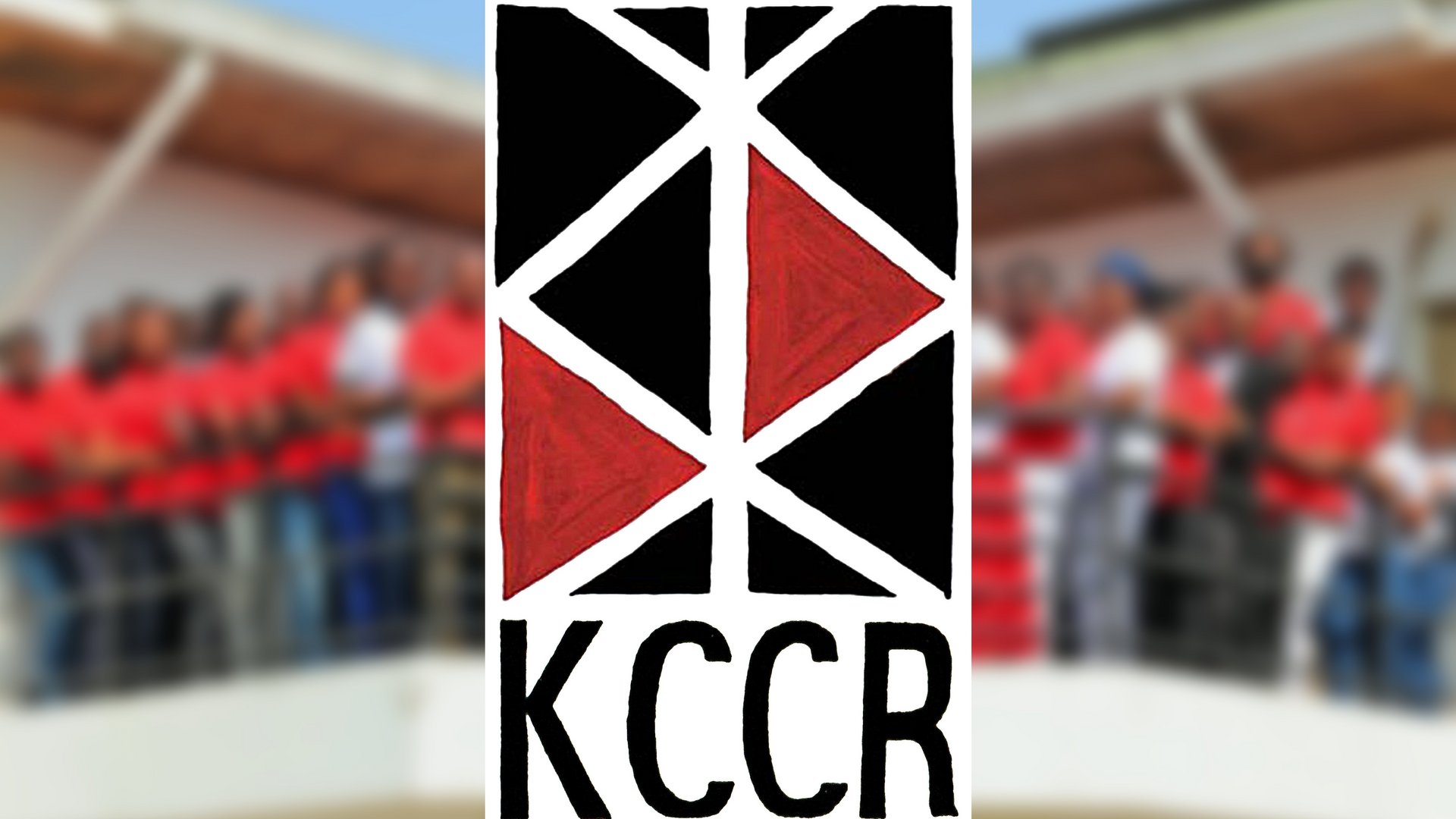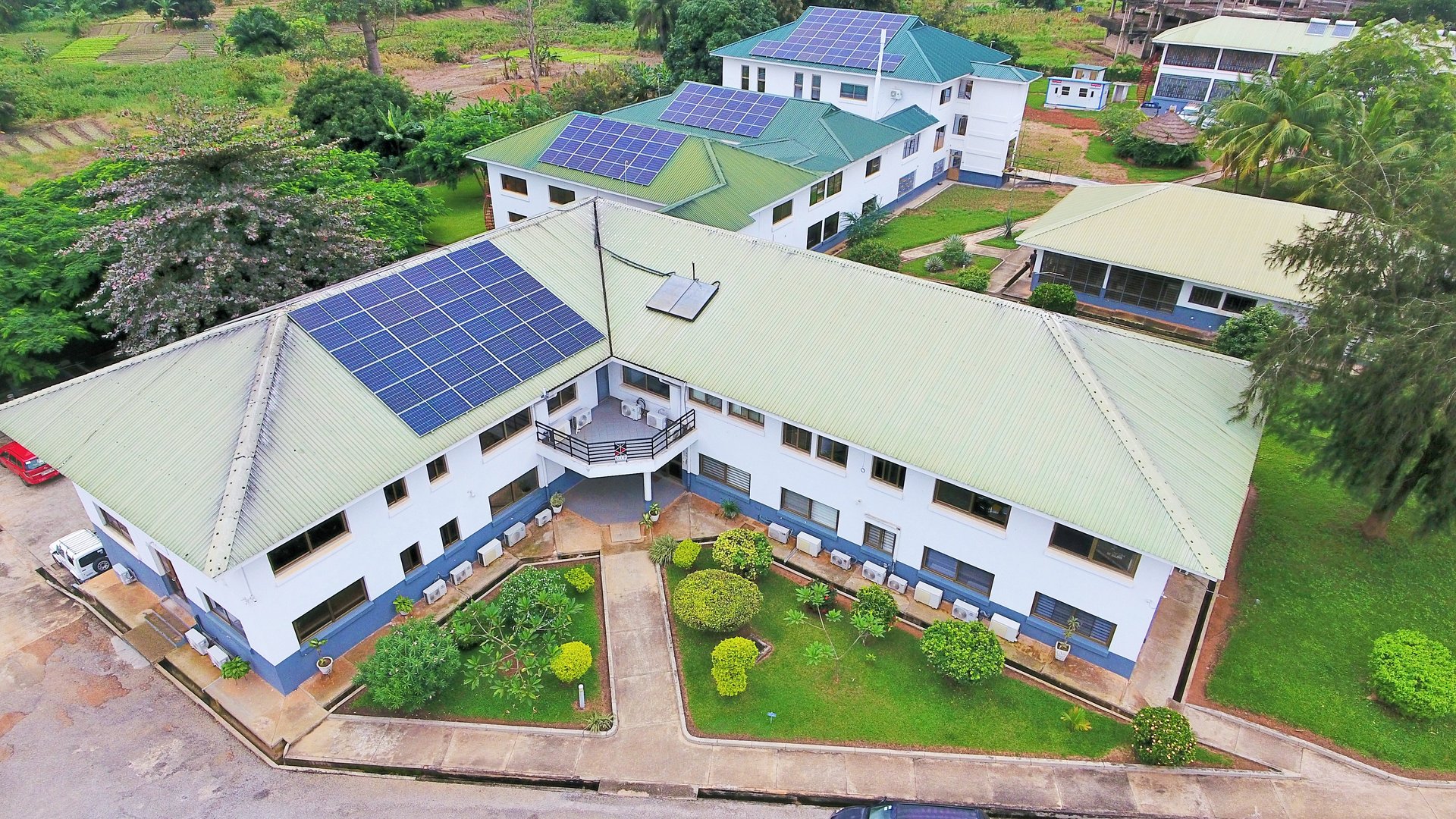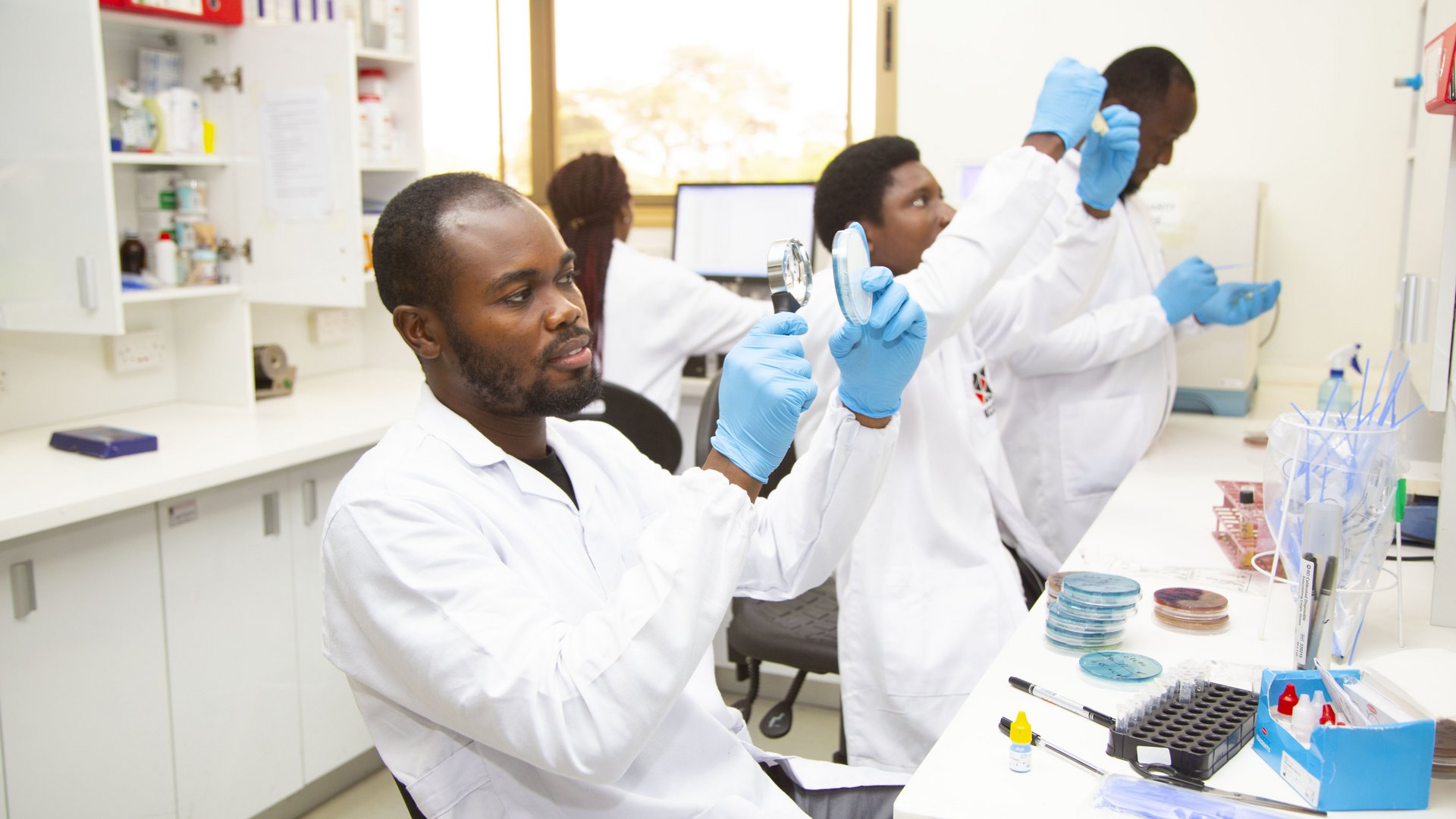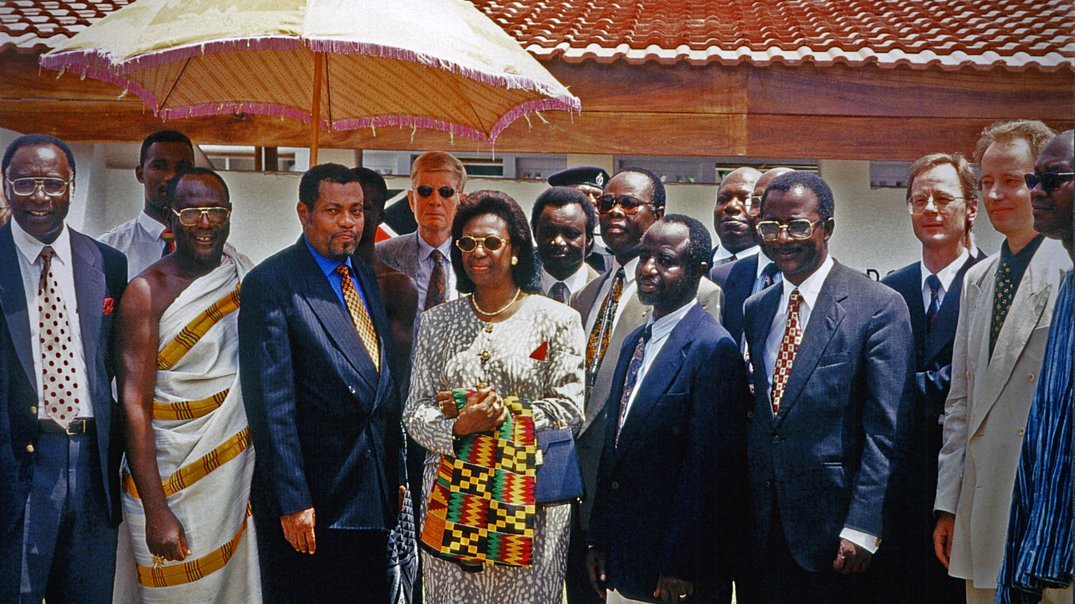The KCCR: An international platform for biomedical research
Between 1968 and 1990, BNITM operated a research station in the rainforest of Liberia, 125 kilometres from the capital Monrovia. The "Liberia Research Unit" was located on a concession area of a mining company, which also operated a hospital there. When the civil war broke out, the institute had to close the research station.
As a result, at the beginning of the 1990s, the Institute's management looked for cooperation partners in East and West Africa. In the young fourth republic of Ghana, they found ideal conditions: political stability, a committed university - and a population with a great need for tropical medical care. The Kwame Nkrumah University of Science and Technology (KNUST) in Kumasi had a medical faculty, but no research laboratory. Several of its professors had studied in Germany, so they spoke German and knew the German science system. A win-win situation.
In 1997, the Republic of Ghana and the Free and Hanseatic City of Hamburg concluded a state treaty establishing a joint venture between KNUST, BNITM and the Ghanaian Ministry of Health. According to this agreement, BNITM provides the basic funding and takes care of the construction of a modern laboratory building, KNUST provides part of their campus and organises the connection to the medical faculty. The KCCR scientists raise the necessary third-party funds for their research projects. The laboratory building of the KCCR was built and expanded with funds from the Volkswagen Foundation, state institutions and the Association of Friends of the Hamburg Tropical Institute.
BNITM-Chair Prof. Jürgen May talks about the origins of the joint venture to found KCCR in Ghana.
Research profile
The research profile of the KCCR is rapidly evolving. Current established research groups include
- Neglected tropical skin diseases & Buruli ulcer
- Molecular diagnostics
- Infectious Immunology
- One Health Virology
- One Health Bacteriology
- Infectious Disease Epidemiology
- Filariasis and Onchocerciasis
- Malaria and Entomology
- Bioinformatics and Computational Biology
- Vector Biology
- Infectious and non-infectious diseases
- Clinical Research
- Global Health and Infectious Diseases
- Ongoing clinical trials on Buruli ulcer, COVID-19, malaria and filariasis
The KCCR has a laboratory area of 300 square metres. It has two biosafety level 3 laboratories for working with dangerous bacteria and viruses. In addition, there are biosafety level 2 (BSL-2) laboratories for immunology, bacteriology, parasitology, virology, molecular biology and entomology. Street lighting, hot water and parts of the laboratories are rubbed with solar power.
The immunology lab is equipped with flow cytometers, incubators, ice machines, centrifuges and ELISA readers, while the bacteriology lab has a biosafety bonnet, incubators, microscopes, and biochemical kits for identifying bacteria. It also has the VITEK 2 system, which provides accurate and reliable results for identifying microorganisms and testing sensitivity to antibiotics in less than 24 hours.
The molecular biology labs are equipped with thermocyclers for standard PCR and real-time PCR. Equipment also includes Illumina iSeq100, Qubit, Line Probe Assay, GeneXpert, agarose gel electrophoresis machine, transilluminator, refrigerated centrifuges and biosafety bonnets. The Agilent Tapestation provides an automated alternative to traditional gel electrophoresis, allowing researchers to analyse the quantity and size of DNA or RNA samples from just a few microlitres.
The centre has several freezers with temperatures of -20, -80 and -150 degrees and a cold room with 4 to 8 degrees for sample storage. The new entomology lab has capacity for parasite cultures. The new outbreak preparedness building block is equipped with BSL3 and BSL2 laboratories, molecular biology, sequencing, bioinformatics, teleconferencing, meeting rooms and offices for scientists. The installed solar system provides a continuous power supply to the BSL-3 laboratory.
Scientific Director

- Link to the flyer of the KCCR ( PDF 955 KB )














